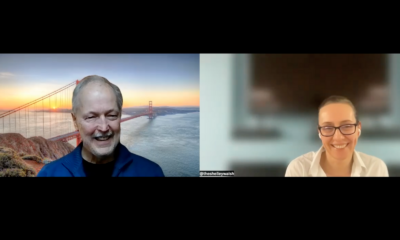PPC
An Omnichannel strategy is all about trust!

Recently I have found the need to spend a lot of time training my team on how to speak to clients to get them to accept a new idea or strategy that we are proposing. We’ve all been there, there’s an exciting opportunity to test the next best thing and we are unable to get the client on board. Today, I am going to share a few of my training tips around understanding a client’s goals and pressures and how we can use this to bring a client around an unfamiliar idea.
As an example, we are going to use selling an omnichannel strategy to key stakeholders and learn how to convince a digital marketing program to evolve from 1-2 channels operating in silos, to a multi-channel and platform connected approach.
This all starts with “speaking their language”. It can be hard for someone new to the industry, or to the professional world, to pick up on this subtle, yet very important, way of communicating ideas. Our understanding of why something is important, or why it should be done, is often leagues away from what will convince a client to increase their time or money invested.
What does this mean? When we communicate with a client we must alter the way in which we discuss and frame particular topics. We must guide conversations to the discussion of key objectives and goals and speak to them on their terms.
Why? At this point you are not just an expert digital marketer, you need to be an expert salesperson. This required a different set of skills that your agency likely doesn’t teach you on day one. Clients can think of you in multiple ways, and it’s important that we first decide how we want to be perceived, and compare that to how we might be perceived to then adjust our behavior accordingly. Do we want to be inexperienced or experienced? Casual or professional? Distracted or focused? Untrusted or trustworthy? At times it is okay to be one or the other, but it is important that you work on building up high levels of trust and professionalism as two key sales-focused traits.
How can we do this? By being self-aware of our shortfalls and our strengths we are able to tailor how we are perceived by others and can look to improve the areas in which we are lacking. A few common mistakes to avoid: over or underselling, ‘filling in the silence’ during a meeting, and worst of all falling for the trap of ‘just be yourself!’. Being yourself is great outside the boardroom, however, everyone has inside of them that professional and business instinct to some degree which can be fostered and grown. It’s up to you to develop it, have no fear!
How does this relate to selling an omnichannel marketing strategy? Great question! Convincing senior stakeholders to make such a change in their overall marketing strategy isn’t all about showing them pretty pictures or endless amounts of data with green numbers. Convincing these stakeholders is all about forming a coherent narrative around why moving to this strategy delivers greater toward their goals and improves efficiency by reducing waste. The only hard part here is understanding how they think of their goals, and why that specific goal is important to them. If we are able to then evolve their goals, or increase those targets through our new strategy and a new understanding of paid media then we are far further than any other team will be.
How you convince a client to move to an omnichannel approach is going to vary significantly from client to client, and there is no set formula. The key is proving that you are the expert, and if you can’t convince them of that, then you build trust to convince them that you are going to make this work no matter what. Having a bit of Jack Russell Terrier energy, mixed with a big splash of a Poodle’s confidence will help get the job done.



















You must be logged in to post a comment Login